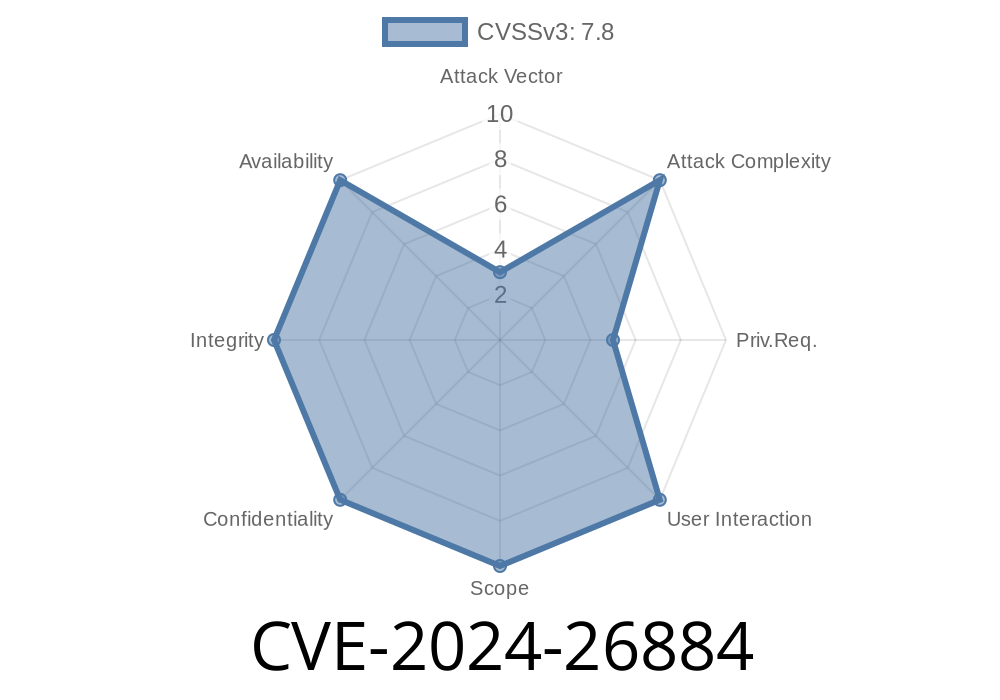A new Linux kernel security issue—CVE-2024-26884—has drawn attention from kernel developers, sysadmins, and security enthusiasts. If you run or administer Linux systems, especially older machines or embedded devices using 32-bit processors, this one’s for you. Let’s break down what happened, why it’s serious, and what you can do.
What is CVE-2024-26884?
This vulnerability exists in the Linux kernel’s Berkeley Packet Filter (BPF) system, specifically in the part of the code handling hash tables (hashtab) and their memory allocation on 32-bit architectures.
The crux: the function used to size hash buckets, roundup_pow_of_two(), can overflow when asked to handle large table sizes on 32-bit systems. But the kernel’s own check for overflows happened after the dangerous operation, meaning it could fail in certain situations.
Bad news: This could allow an attacker to mislead the kernel into making dangerous memory allocations, cause kernel crashes, or possibly exploit undefined behavior.
Let’s walk through a simplified version of the kernel code
unsigned long n_buckets = roundup_pow_of_two(n_entries);
// Original overflow check: after round up
if (n_buckets == ) {
return -EINVAL; // error
}
The attacker sets n_entries so large that roundup_pow_of_two() overflows internally on a 32-bit system before the check. This could result in n_buckets wrapping around and the check missing it entirely.
The dangerous part? In C, left-shifting into the sign bit (so, 1UL << 32) on a 32-bit system is undefined behavior — the result isn’t even guaranteed to be consistent between compilers!
Recent Patch – How Was It Fixed?
Developers realized that checking for overflows after the operation is too late. The overflow can already have happened inside the call to roundup_pow_of_two(). So, the fix is to check before calling the rounding function:
if (n_entries > (ULONG_MAX / 2) + 1) { // check first
return -EINVAL;
}
unsigned long n_buckets = roundup_pow_of_two(n_entries);
By comparing against the maximum safe value before the problematic shift, the potential for overflow is dodged.
Why Does It Matter?
- Memory Safety: Bad values here can lead the kernel to try and allocate either too much or just the wrong kind of memory structure — classic grounds for memory corruption or denial of service.
- Broad Impact: This issue affects any kernel code using the DEVMAP_HASH code (copied from hashtab), which is part of core BPF infrastructure on Linux. Embedded or custom devices are especially at risk if they’re on 32-bit CPUs.
- Exploitability: The flaw was actually found by syzbot, Google’s automated kernel fuzzer, so it’s not just theoretical — it’s reachable via crafted BPF maps.
While this vulnerability isn't a straight remote code execution, here’s what an attacker could do
1. User-space code attempts to create a BPF map (for networking, tracing, etc.) on a 32-bit Linux kernel.
Kernel allocates memory incorrectly or panics due to bad data structures.
This can easily become a denial-of-service vector or a building block in a larger attack chain.
Original References & Links
- Linux Kernel Patch (LKML)
- syzbot report
- Kernel source changes
## Quick Mitigation / What Should I Do?
- Update your kernel: If you’re running on a 32-bit architecture, make sure your kernel includes the fix. Any mainline kernel after late February 2024 should be safe.
- Monitor your systems: Check for suspicious kernel panics or BPF activity if you can’t patch immediately.
- Review BPF usage: Restrict BPF map creation to trusted users/processes, especially if you’re running older or custom hardware.
Conclusion
CVE-2024-26884 is a great example of how subtle programming mistakes—like misplaced overflow checks—can lead to real-world vulnerabilities in low-level code. While 32-bit Linux systems are getting rarer, they still power embedded devices, routers, and legacy hardware—places where security gaps linger.
If you’re responsible for such systems, patch ASAP. For everyone: let’s keep learning from these bugs, so our systems keep running safer and smoother every day.
*You read it first here. Want more exclusive Linux security breakdowns? Keep following!*
Timeline
Published on: 04/17/2024 11:15:10 UTC
Last modified on: 06/27/2024 12:15:22 UTC
